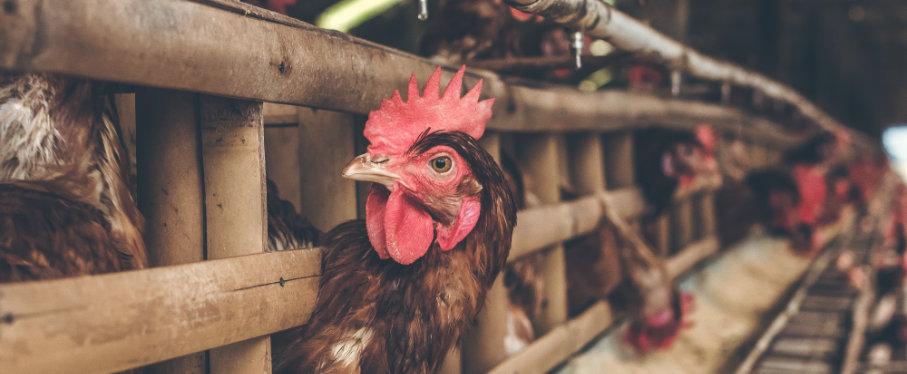
4 minute read
Advanced dosing syringes for veterinary use
Nordson EFD, a Nordson company (NASDAQ: NDSN) and the world’s leading precision fluid dispensing systems manufacturer, has recently introduced of a comprehensive line of disposable dosing syringes for animal health products such as veterinary pharmaceuticals and nutritional supplements. Its industry-leading Dial-ADose™ syringes provide an innovative solution for end users to customize multiple doses for an animal based on the product manufacturer’s specified treatment calibrations such as milliliters, cubic centimeters, the animal’s weight and more. An integrated ring allows users to “dial in” and administer the correct dose. Nozzle caps allow users to securely reseal the syringe until its next use. EFD’s Posi-Dose® syringe, designed for equine oral deworming treatments, features a unique twist-lock ring that snaps into position to set specific dosing volumes. Its nozzle-free design ensures positive confirmation that every dose is completely administered. It too can be resealed for multi-dose use. In addition, Nordson EFD offers a wide variety of dosing syringe sizes (6cc to 100cc volumes) and nozzle types for oral, topical, and intramammary uses. Onepiece and two-piece plungers without “dialing” mechanisms are also available. The common uses of these syringes are: Veterinary drugdelivery for small companion animals to livestock, Primary packaging for equine paste (also known as horse dewormer), Intramammary syringes for mastitis treatment in cows. For more information, call our Area Sales Manager in South Africa Mr. Preston Bowman (+27) 79 693 5572 or write to
preston.bowman@nordson.com
Advertisement

Nordson EFD Dial-A-Dose™ and Posi-Dose® allow users
to tailor multiple, accurate doses based on treatment requirements.

EFD dosing syringes feature a unique ‘lead-in’ aid that facilitates high-speed filling. • Wide range of nozzles for varied applications • Oral, topical, intramammary, and rectal uses • Self-venting feature prevents air entrapment • Reliable, accurate, repeatable dosing
WATCH VIDEO nordsonefd.com/AnimalHealthAA africa@nordsonefd.com
Nigeria: How Covid-19, Border Closure Crippled Poultry Business in Sokoto – Farmers

Ankeli Emmanuel takes a look at the negative impact of border closure, coupled with the COVID-19 pandemic, on the over 50 poultry farm bussines in Sokoto State. For those in the food and beverage sector, aside from natural occurrences, envisaging loss in a large proportion is minimal in their calendar because of the market demands. This is more pronounced as most people venture into agric business, as an investment with little risk. However, the population in every state is enough for the farmers to sell their produce unhindered. Irrespective of this, poultry farmers in the Seat of the Caliphate enjoyed high patronage until the federal government closed it's borders with neighbouring countries. This development therefore led to the shortage of corn milled as chicken feeds. It became worse with the outbreak of COVID-19 which forced economic cracks globally. Speaking to LEADERSHIP Friday, product and sales manager of Magatakarda Farms along Sokoto/ Birnin Kebbi road, Alhaji Zaharadden Ahmed Rabiu said COVID-19 has affected their farm seriously. "We produce as much as 500 crates of eggs with 56 staff capacity before the COVID19. We also supply eggs to states like Zamfara, Kebbi and even neighbouring Niger Republic". "But now, COVID-19 has reduced the egg production capacity to about 100 crates, hence, making us reduce our staff to 16. The price of feeds has also tripled". "Before COVID-19, we had 60,000 laying birds, which has reduced to 13, 000. My appeal however is that the federal government should try to look towards the direction of such farms that helps to reduce unemployment in the country". "The high cost of feed has reduced the production capacity. We get our feeds now from Plateau State. We get Vital food from them. Initially, we do buy from Olam in Kaduna but they increase prices at will and even without notifying customers, hence the need to look for an alternative". On his part, the manager of Ibrahim Gusau Farms and Allied Agro, Ibrahim Gusau said he started poultry business recently with 12 staff and 2,500 chickens. Gusau, who noted that he gets about 120 creates per day, added that his challenge currently is the high cost of feeds. "Though, we have the engine that grinds the feeds but our challenge is getting the corn to grind into feeds". "The border closure was behind the increment in chicken feeds. Prior to the closure, we did buy a bag of corn for N15,000 but now it has increased to N25,000". "Back then when the borders were opened, we bought a bag of corn between N8, 000 to N10,000". On how the birds consume feed per day, Gusau said, "We fed 1000 chickens with five bags of feed everyday". "Before COVID-19, we had about 5000 chickens but now, we have reduced it because of the high cost of feed". "There is high demand for chickens and eggs and we cannot meet up with such demands. Farmers from Kebbi, Zamfara, Sokoto and Niger Republic buy from us", he added.










